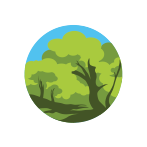EYFS
Early Years Foundation Stage and Phonics
"Every child deserves the best possible start in life and support to fulfil their potential. A child's experience in the early years has a major impact on their future life chances. A secure, safe and happy childhood is important in its own right and it provides the foundation for children to make the most of their abilities and talents as they grow up."
"Early Years Foundation Stage Profile"
Department for Children, Schools and Families 2012
Principles:
- A unique child . We recognise that children develop in individual ways and at varying rates. Children's attitudes and dispositions to learning are influenced by feedback from others; we use praise and encouragement as well as celebration and rewards to encourage and develop a positive attitude to learning.
- Positive relationships. We recognise that children learn to be strong and independent from secure relationships and aim to develop caring, respectful and professional relationships with the children and their families.
- Enabling environments. We recognise that the environment plays a key role in supporting and extending the children's development. Through observations we assess the children’s interests, stages of development and learning needs before planning challenging and achievable activities and experiences to extend their learning.
- Learning and development. The Foundation Stage is organised to allow children to explore and learn securely and safely. The environment has clearly defined areas that reflect the different aspects of the Early Learning Goals. It is set up in learning areas where children are able to find and locate equipment and resources independently.
At Theydon Bois Primary School we greatly value the importance that the EYFS plays in laying secure foundations for future learning and development. It is important to view the EYFS as preparation for life as well as preparation for the next stage of education.
The EYFS for children is from birth to five years of age. All children begin school with a wide variety of experiences and learning and it is the duty of the adults working in the foundation stage to accept the task of building upon that prior learning experience. This is done through a holistic approach to learning ensuring that parents and guardians, support staff and the Foundation Stage team work effectively together to support the learning and development of the children in their responsibility.
Learning and Development
Learning and development is categorised into three prime areas of learning:
- Communication and language.
- Physical development.
- Personal, social and emotional development.
Additionally there are four specific areas of learning:
- Literacy.
- Mathematics.
- Understanding the world.
- Expressive arts and design.
Achievement of these prime and specific areas of learning is by:
- Playing and exploring.
- Active learning.
- Creating and thinking critically.
Children are defined as having reached a good level of development (GLD) at the end of the EYFS if they have achieved at least the expected level in:
- The early learning goals in the prime areas of learning
- The early learning goals in the specific areas of mathematics and literacy.
Phonics
At Theydon Bois Primary School we use a consistent phonics approach across EYFS and KS1 classes. Our chosen phonics scheme is Supersonic Phonic Friends and validated by the Department for Education.
At the end of September, we invite our Reception parents in for an evening workshop which allows us to share our scheme and show parents how they can support their child’s learning at home.
A link the information shared at this workshop is here for your reference.

